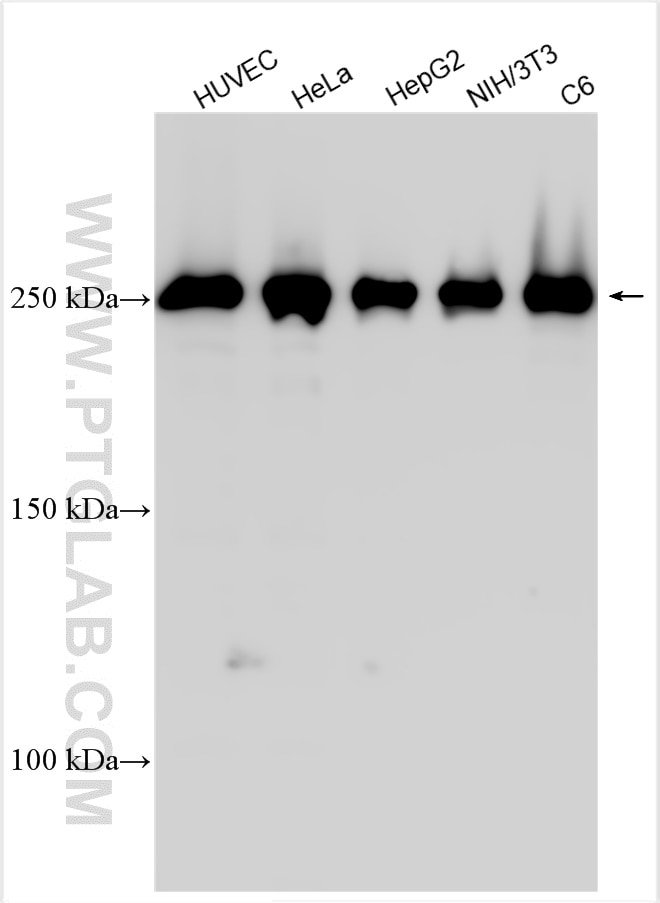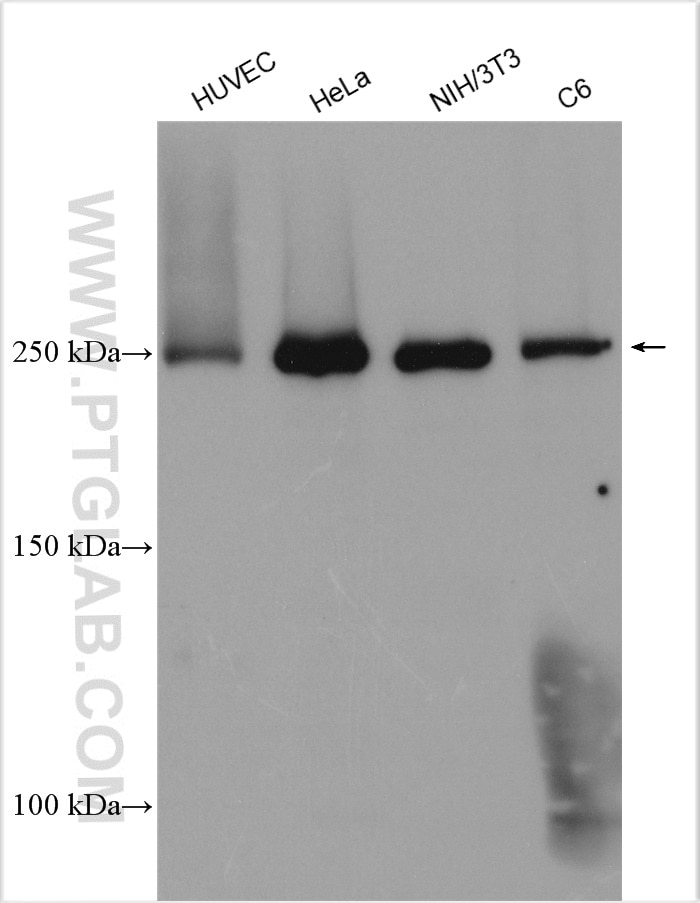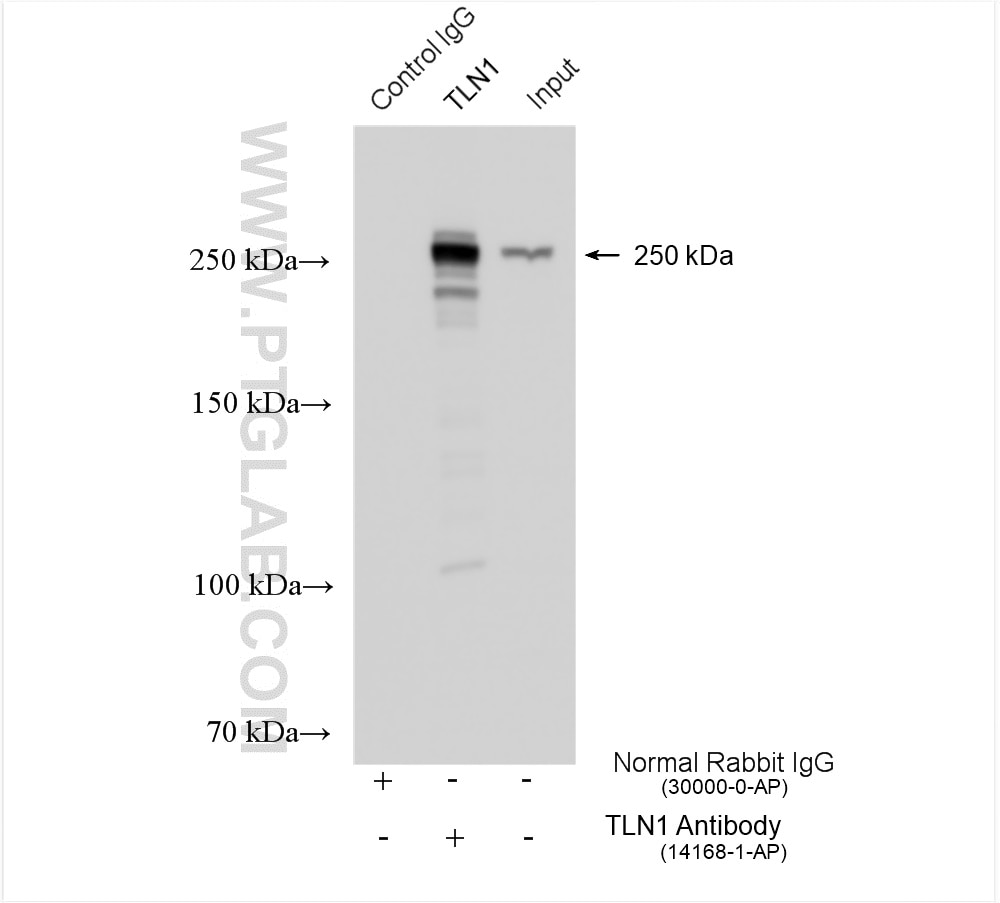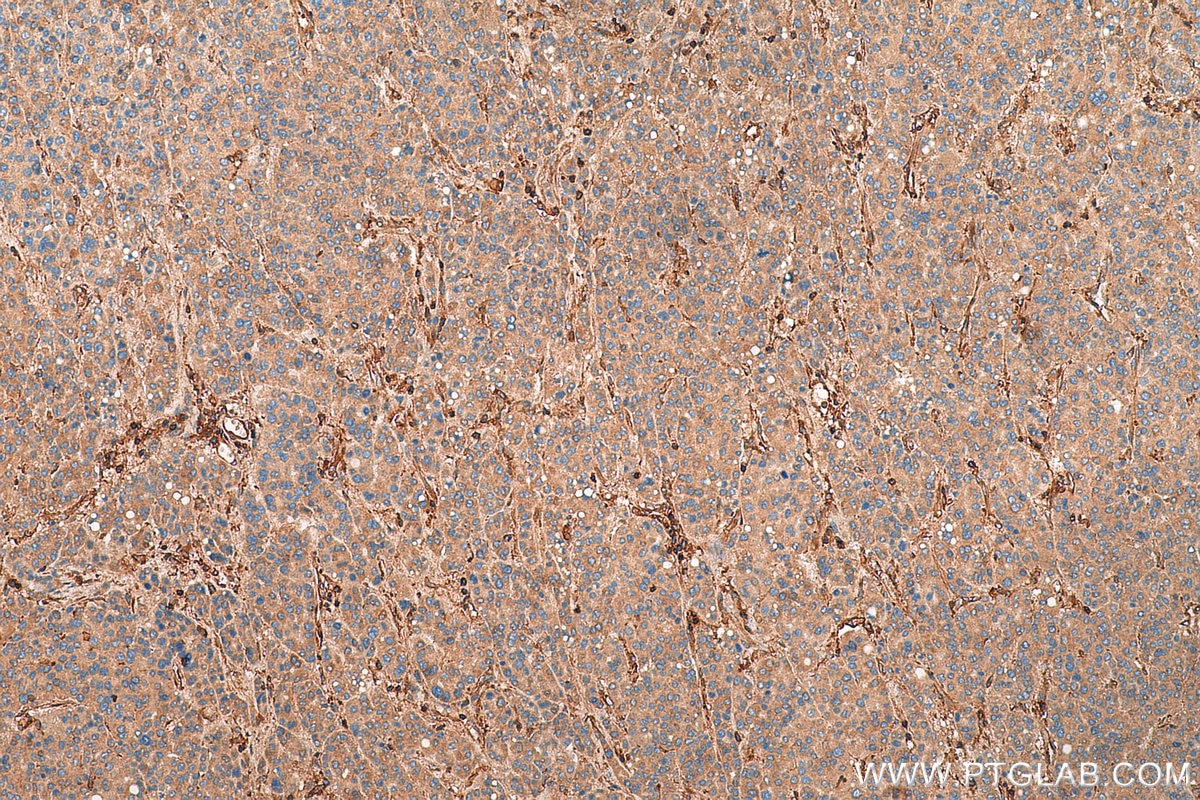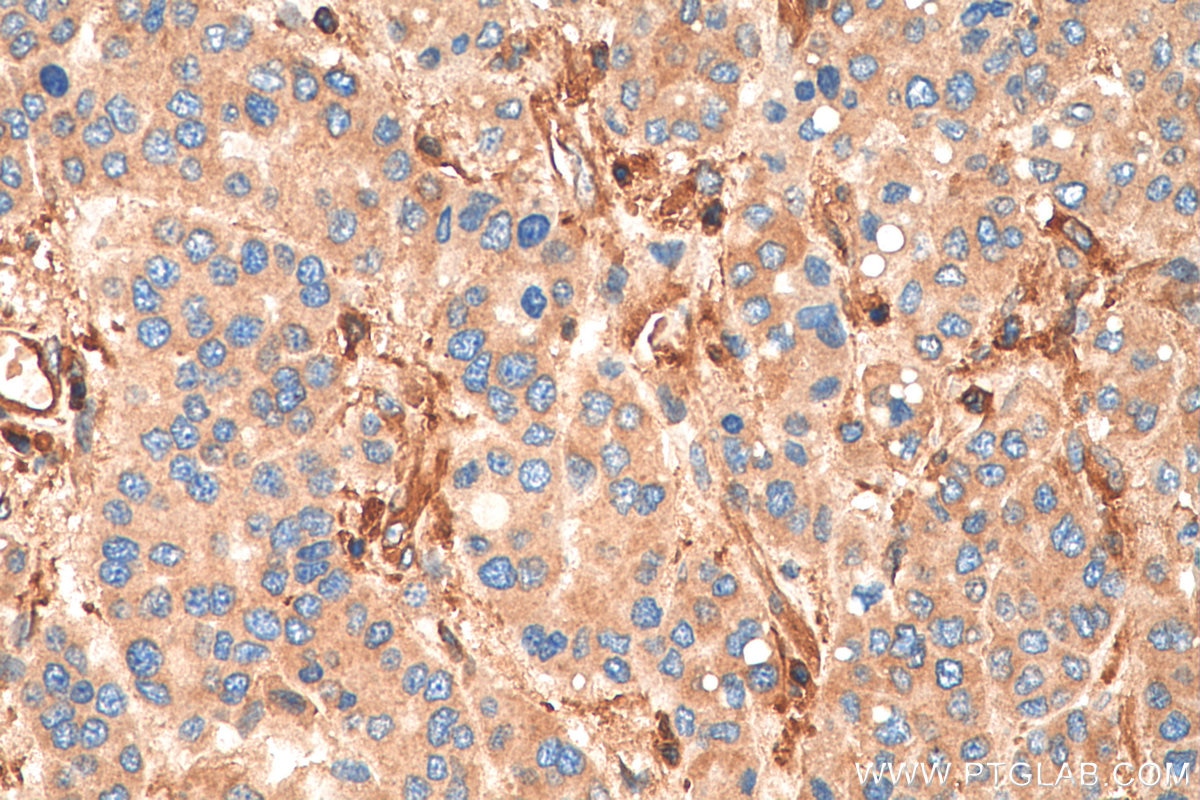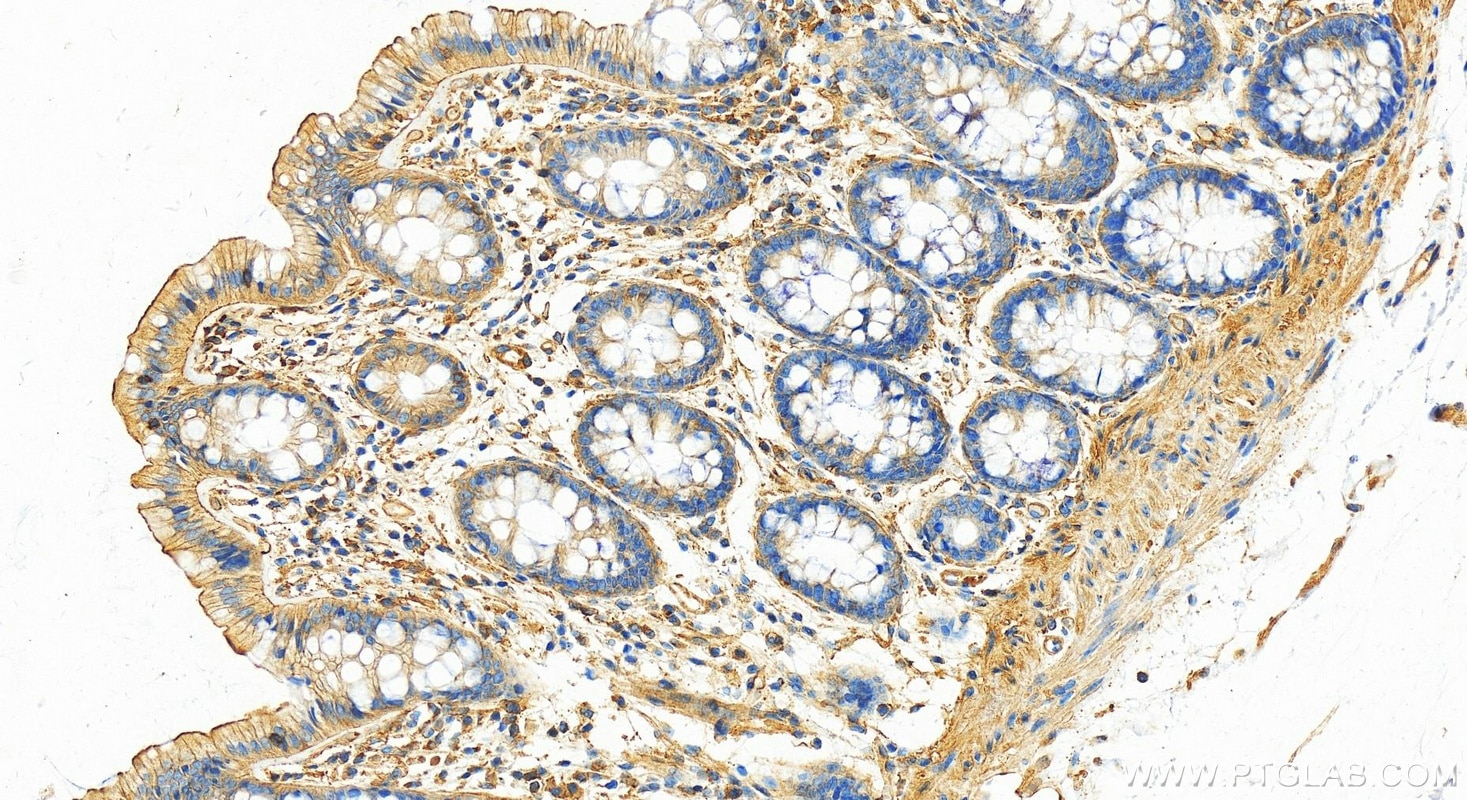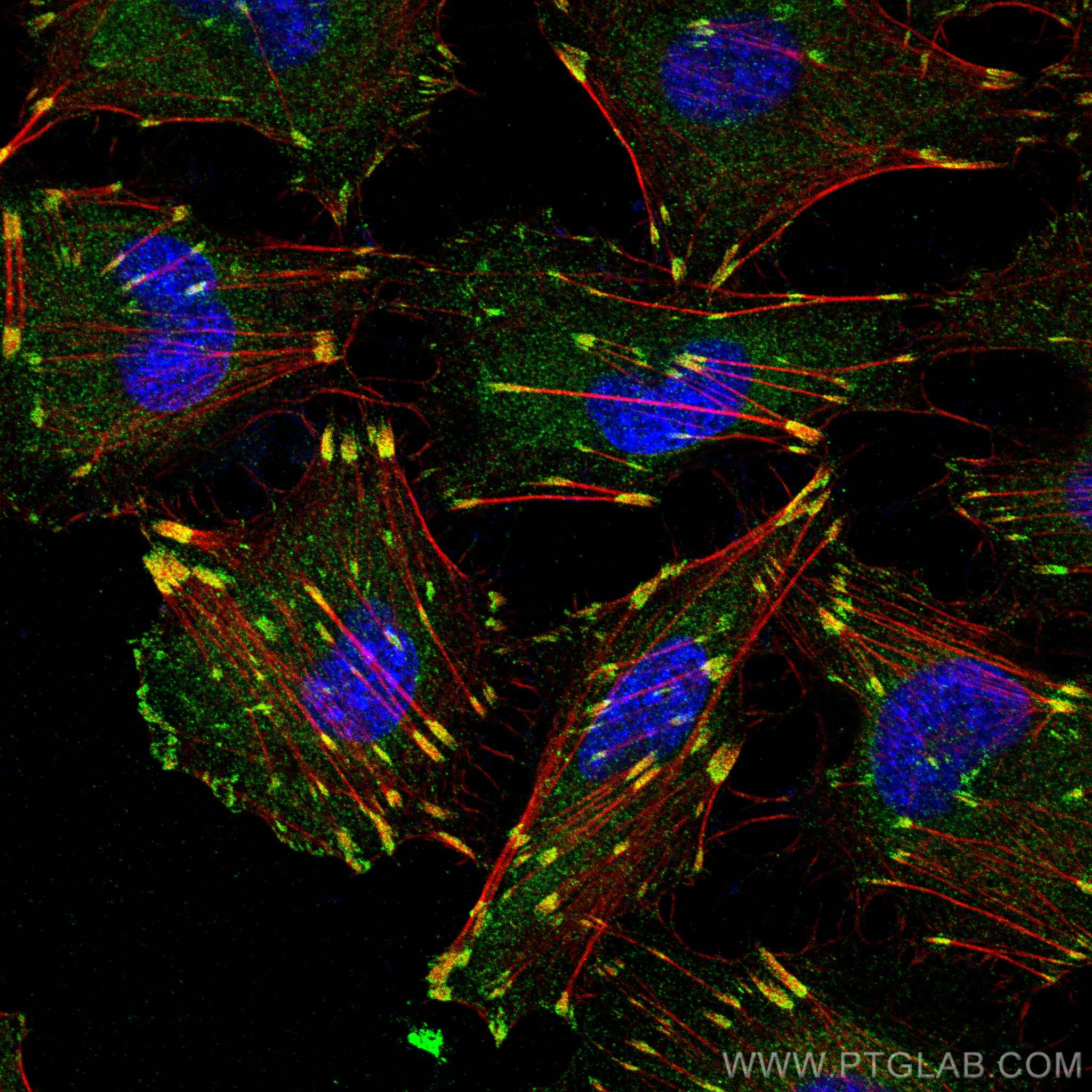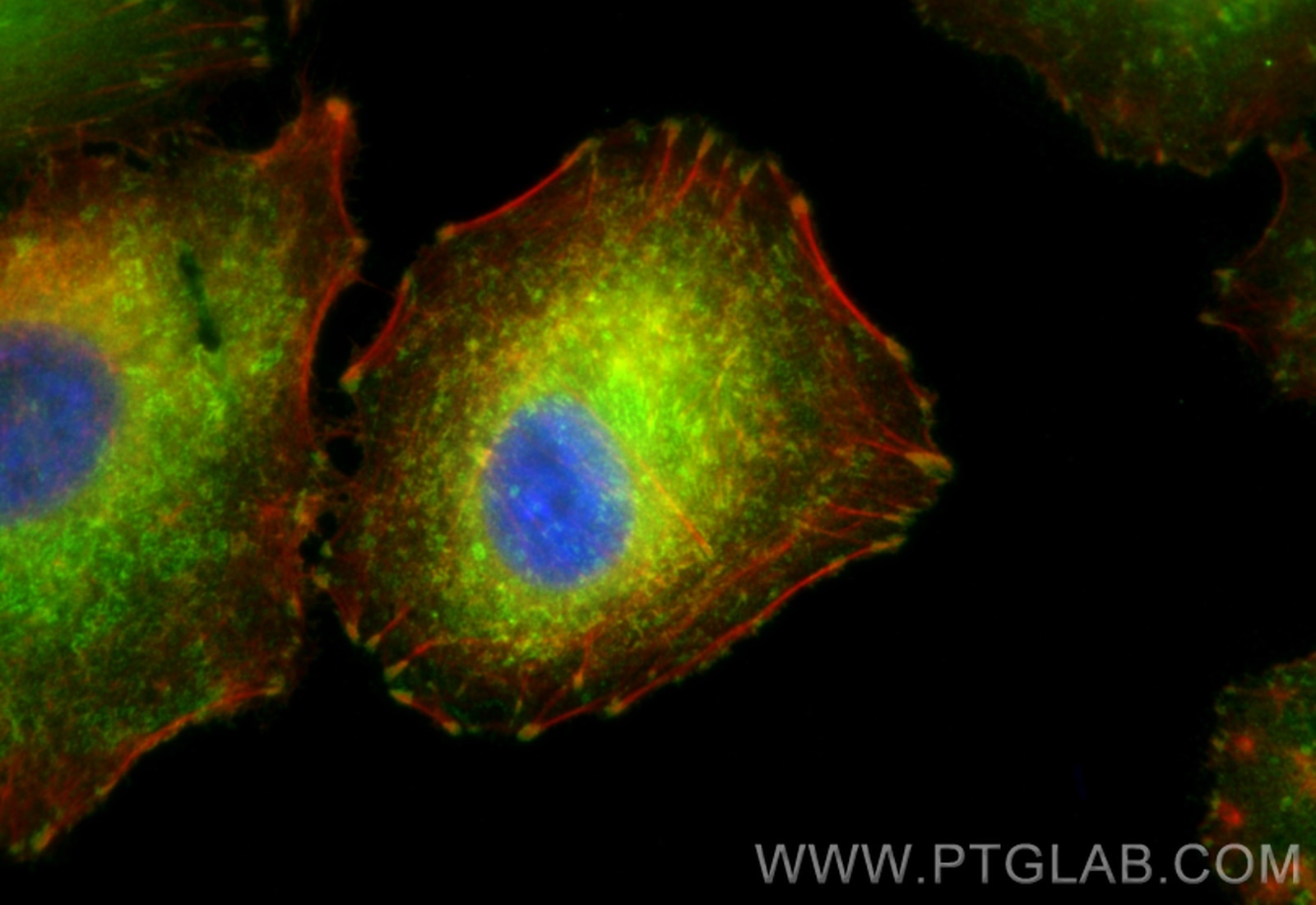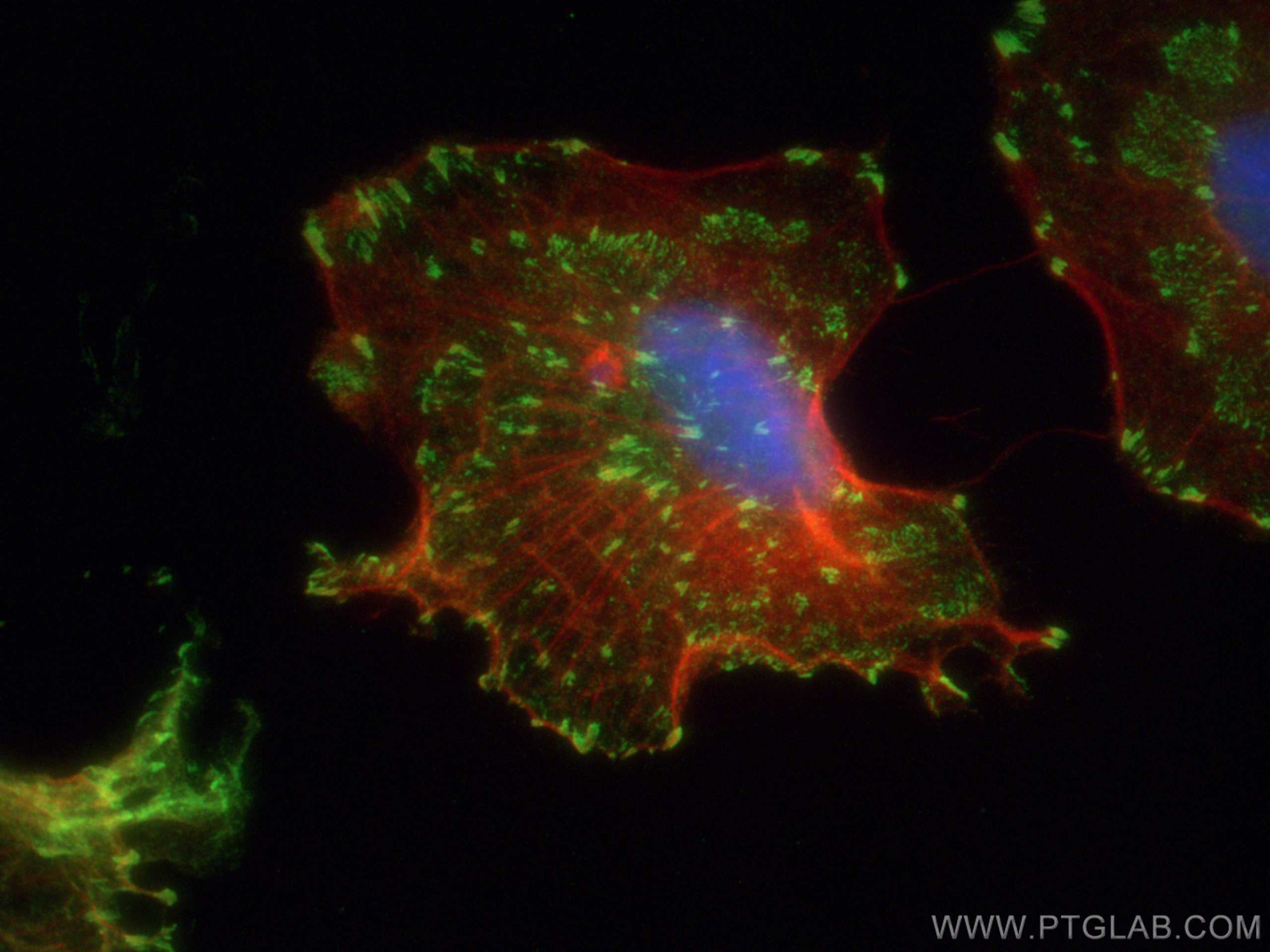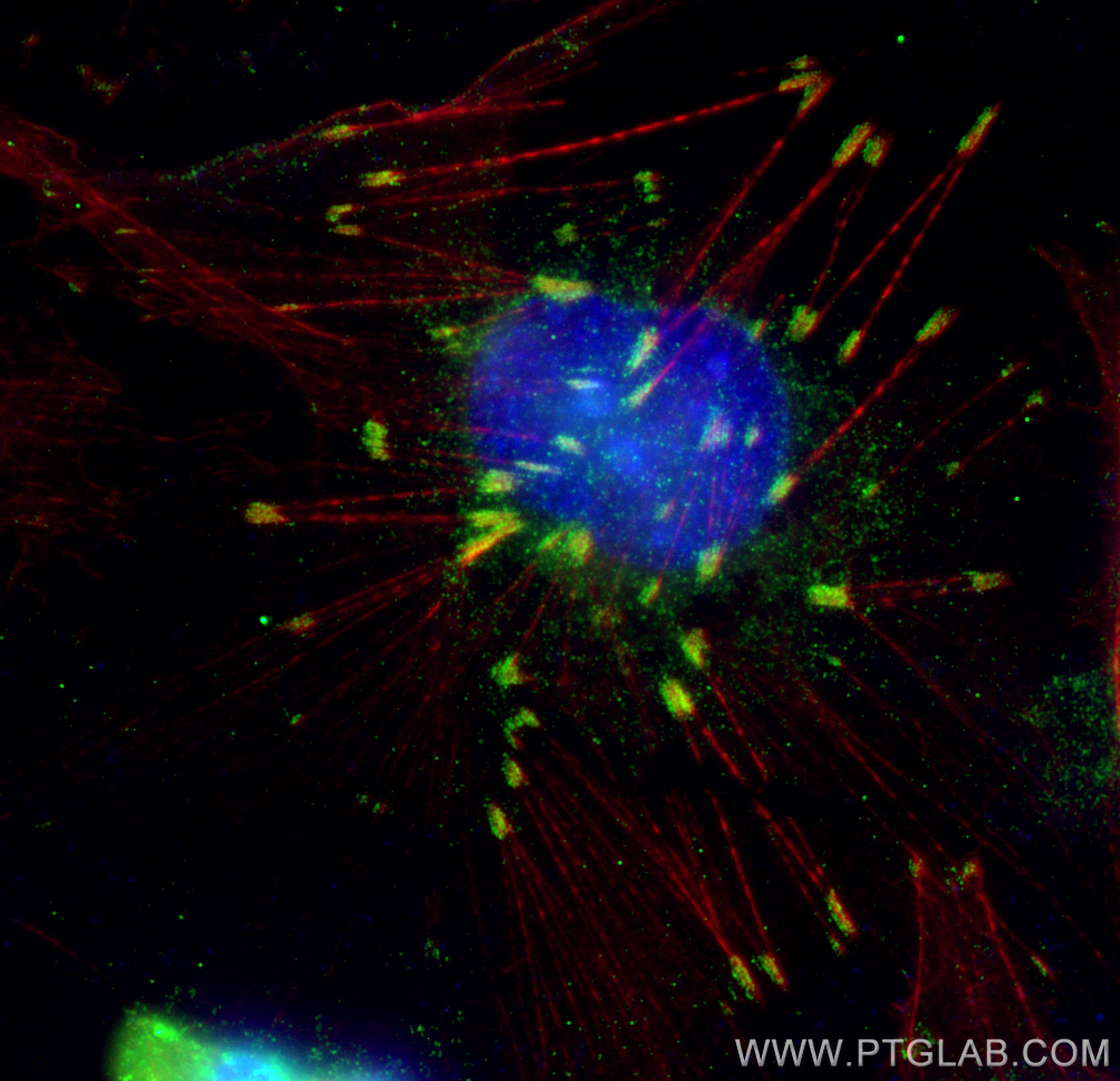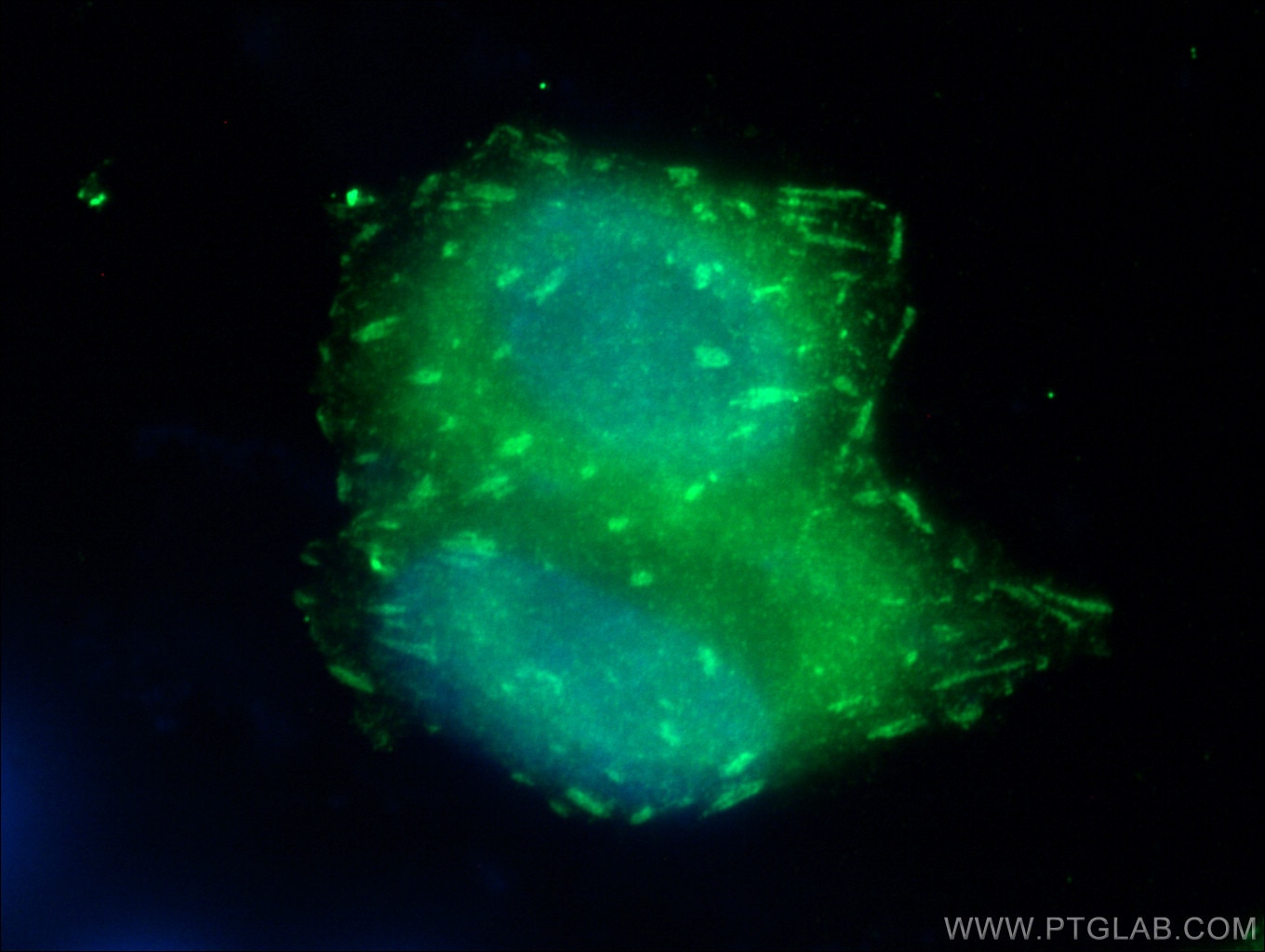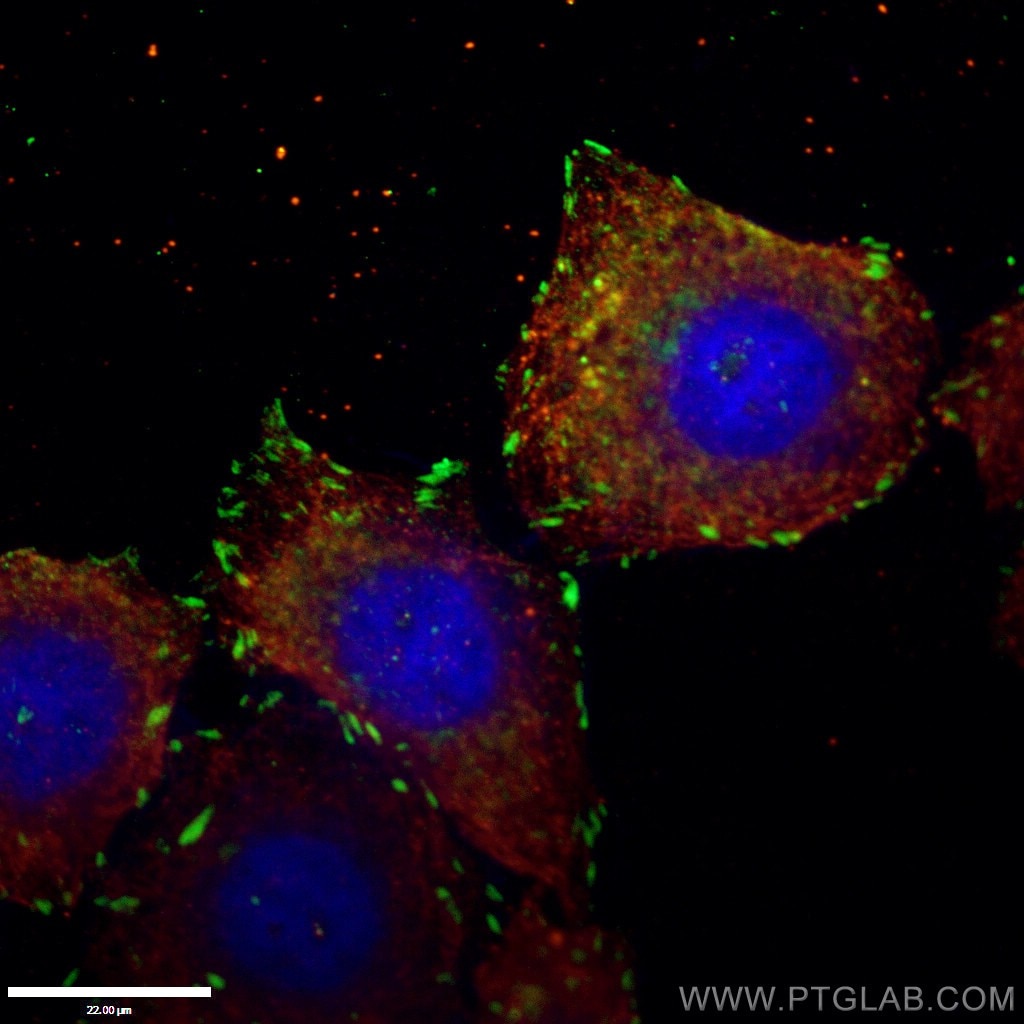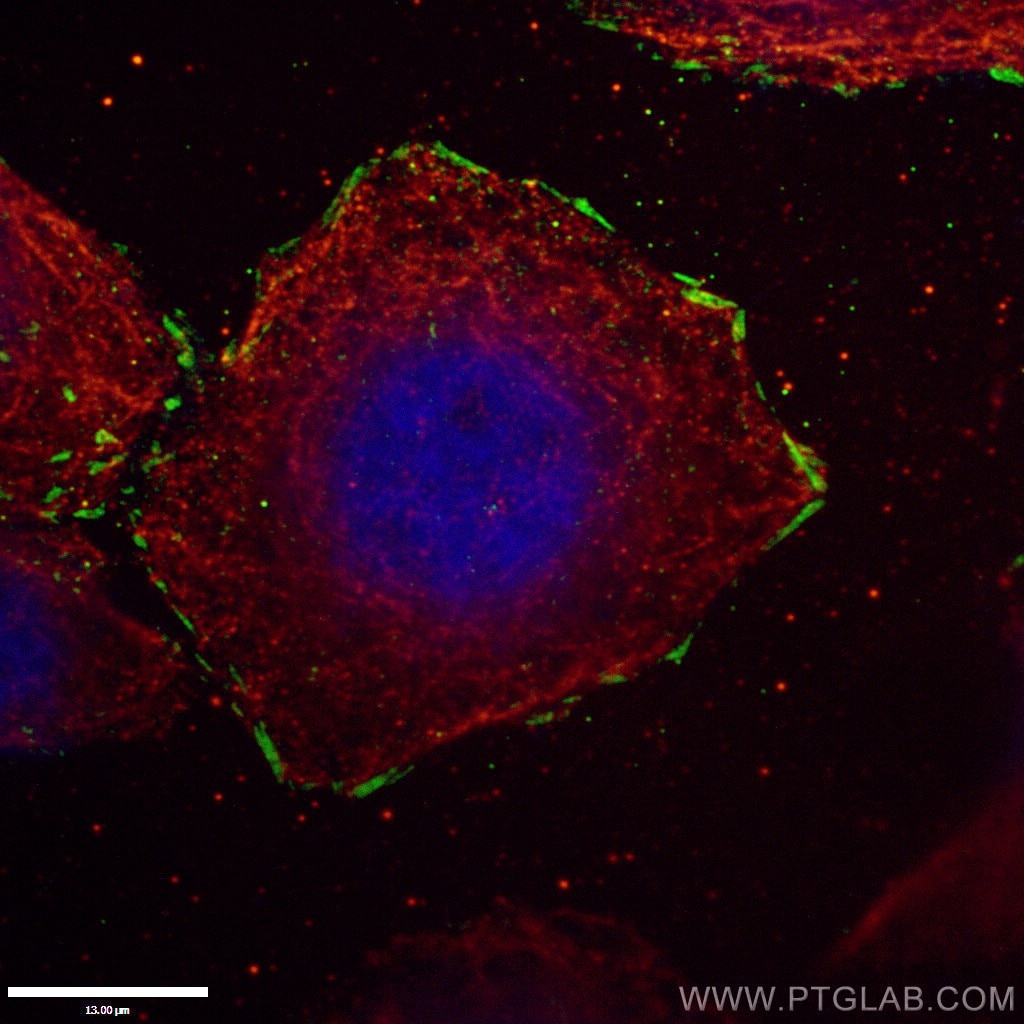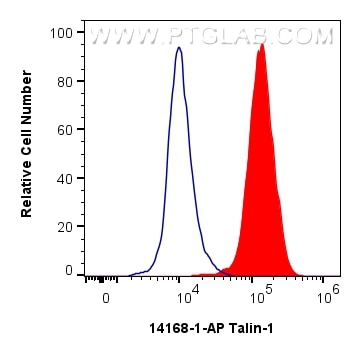Validation Data Gallery
Tested Applications
| Positive WB detected in | HUVEC cells, HeLa cells, NIH/3T3 cells, C6 cells, HepG2 cells |
| Positive IP detected in | HeLa cells |
| Positive IHC detected in | human liver cancer tissue, human colon tissue Note: suggested antigen retrieval with TE buffer pH 9.0; (*) Alternatively, antigen retrieval may be performed with citrate buffer pH 6.0 |
| Positive IF/ICC detected in | HUVEC cells, HeLa cells, HepG2 cells, A549 cells |
| Positive FC (Intra) detected in | HeLa cells |
Recommended dilution
| Application | Dilution |
|---|---|
| Western Blot (WB) | WB : 1:5000-1:50000 |
| Immunoprecipitation (IP) | IP : 0.5-4.0 ug for 1.0-3.0 mg of total protein lysate |
| Immunohistochemistry (IHC) | IHC : 1:250-1:8000 |
| Immunofluorescence (IF)/ICC | IF/ICC : 1:150-1:600 |
| Flow Cytometry (FC) (INTRA) | FC (INTRA) : 0.40 ug per 10^6 cells in a 100 µl suspension |
| It is recommended that this reagent should be titrated in each testing system to obtain optimal results. | |
| Sample-dependent, Check data in validation data gallery. | |
Published Applications
| KD/KO | See 5 publications below |
| WB | See 22 publications below |
| IHC | See 4 publications below |
| IF | See 13 publications below |
| IP | See 1 publications below |
Product Information
14168-1-AP targets Talin-1 in WB, IHC, IF/ICC, FC (Intra), IP, ELISA applications and shows reactivity with human, mouse, rat samples.
| Tested Reactivity | human, mouse, rat |
| Cited Reactivity | human, mouse, rat, chicken |
| Host / Isotype | Rabbit / IgG |
| Class | Polyclonal |
| Type | Antibody |
| Immunogen | Talin-1 fusion protein Ag5367 相同性解析による交差性が予測される生物種 |
| Full Name | talin 1 |
| Calculated molecular weight | 2541 aa, 270 kDa |
| Observed molecular weight | 250-270 kDa |
| GenBank accession number | BC042923 |
| Gene Symbol | Talin-1 |
| Gene ID (NCBI) | 7094 |
| RRID | AB_2271861 |
| Conjugate | Unconjugated |
| Form | Liquid |
| Purification Method | Antigen affinity purification |
| UNIPROT ID | Q9Y490 |
| Storage Buffer | PBS with 0.02% sodium azide and 50% glycerol , pH 7.3 |
| Storage Conditions | Store at -20°C. Stable for one year after shipment. Aliquoting is unnecessary for -20oC storage. |
Background Information
Talin-1 is a large cytoskeletal protein consisting of a globular head domain and a long rod comprised of a series of α-helical bundles (PMID: 35266014). Talin-1 is ubiquitously expressed and is a major component of focal adhesions which are multi-protein, integrin-containing complexes, mediating cell migration, adhesion and integrin signalling (PMID: 33431906). Talin-1 also plays a role in tumor formation, migration and metastasis in various malignancies (PMID: 37013489).
Protocols
| Product Specific Protocols | |
|---|---|
| WB protocol for Talin-1 antibody 14168-1-AP | Download protocol |
| IHC protocol for Talin-1 antibody 14168-1-AP | Download protocol |
| IF protocol for Talin-1 antibody 14168-1-AP | Download protocol |
| IP protocol for Talin-1 antibody 14168-1-AP | Download protocol |
| Standard Protocols | |
|---|---|
| Click here to view our Standard Protocols |
Publications
| Species | Application | Title |
|---|---|---|
ACS Nano Nanotopography Enhances Dynamic Remodeling of Tight Junction Proteins through Cytosolic Liquid Complexes. | ||
Antiviral Res MβCD inhibits SFTSV entry by disrupting lipid raft structure of the host cells | ||
Elife Binding blockade between TLN1 and integrin β1 represses triple-negative breast cancer.
| ||
Mol Oncol ITIH5 as a multifaceted player in pancreatic cancer suppression, impairing tyrosine kinase signaling, cell adhesion and migration | ||
Microbiol Spectr Avian Hepatitis E Virus ORF2 Protein Interacts with Rap1b to Induce Cytoskeleton Rearrangement That Facilitates Virus Internalization.
| ||
Mol Neurobiol Essential Role of Sptan1 in Cochlear Hair Cell Morphology and Function Via Focal Adhesion Signaling. |
